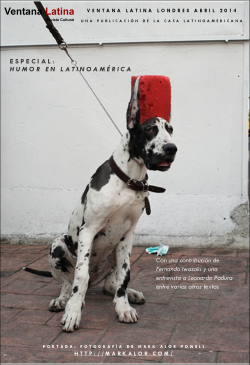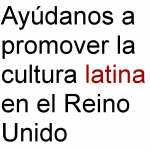Are immigrants bad for the UK? The case of Latin American immigrant women
By Carolina Gottardo*
“Invisible Women”, press here to watch LAWRS´ video
Opening the newspaper these days, one is likely to find at least one article on the issue of immigration, with politicians and the media using and abusing terms like ‘migrants’, ‘drain to the system’, and ‘benefit scroungers’. Given this hostile environment, one cannot be blamed for asking if there is any truth to these accusations, and if immigration is bad for the UK.
As director of the Latin American Women’s Rights Service (LAWRS), an organisation that has been working for thirty years to uphold the rights of Latin American immigrants, refugees, and asylum-seeking women in the UK, I can sincerely say that nothing is further from the truth. There will always be some people who abuse the system – but the evidence is overwhelmingly clear that these people are not Latin American immigrant women and other ethnic minorities.
According to research published by Queen Mary University of London, commissioned by LAWRS and Trust for London, Latin American immigrants to the UK have a very high employment rate, well above the national average. Latin Americans are also a skilled population, with the majority having attained university degrees. However, Latin American women experience a sharp decline in their occupational status following migration and are highly concentrated in the cleaning, catering, and hospitality sectors.
Latin Americans pay their taxes and contribute to the economy. On the other hand, their take-up of benefits is quite low, with only one in five claiming any benefits. There is also a low take-up of public services. As one of the 4,000 women per year that comes to LAWRS put it: ‘We come here to escape poverty and violence. We work in jobs that the native population does not want to do, but they need us. We pay our taxes and we hardly claim anything back.’
This is the reality of many women from ethnic minority backgrounds. Indeed, far from being a burden to the system, the opposite is true. As another woman who used our services explained it clearly: ‘If Latin Americans decided not to go to work for a day, London would be filthy.’
So why are immigrants being demonised? The answer is that this rhetoric is connected to the business of doing politics and the need to earn votes. Studies conducted by the Institute for Public Policy Research regarding the contributions of immigrants (not only financial, but also social and cultural) tell a completely different story from the one portrayed by politicians and the media.
As one of my friends, an economist who does not work in the human rights field, recently pointed out: ‘Immigrants have already passed the first test, which is showing initiative and resourcefulness.’ This is true; it is not easy to leave your comfort zone and go to a country where you don’t know the system or speak the language, and where you will be more vulnerable. Immigrants do it because they have to, because there is no other option, or because of a passionate desire to make a better life for themselves and their family. The journey is not an easy one.
Latin American immigrant women are certainly resilient. They are also survivors, full of initiative and resourcefulness. However, that does not make life easier for them in the UK. Many Latin American women are victims of multiple discrimination on the grounds of their gender, race, and immigration status. There are high levels of ‘in work poverty’ and an endemic problem of labour exploitation. These women also have to face high rates of gender-based violence and abuse, take care of their children (often on their own), and confront rigid gender stereotypes.
LAWRS works to ensure that these women have access to economic security, are free from violence and abuse, and are empowered to assert their rights. This year, 2013, is our thirtieth anniversary working for the rights of women, ethnic minorities, and immigrants. The sad part is that Latin American women who came to this country thirty years ago as political refugees were welcomed with open arms; however, as political sympathies have faded, the situation has grown increasingly worse for both former and current immigrants.
The politicisation of immigration and the negative stereotypes associated with it have made it much harder to integrate and feel welcome. It will be encouraging to open the paper one day and find an article about the financial contribution of immigrants, about how they are making this society more culturally vibrant and diverse, or about how keen they are to participate in society. That will certainly be more encouraging and less patronising than the current articles about immigrants who come to the UK with the plan of becoming a burden to the system. This was definitely not our plan when we came to this country.
I look forward to the day when we are neither attacked, nor used as easy instruments for political and media gain, but rather recognised and valued for the contributions we make.
*Carolina Gottardo
Director, Latin American Women’s Rights Service (LAWRS)
www.lawrs.org.uk







 Copyright © 2024 Company no. 6720498 10 Kingsgate Place, London NW6 4TA, United Kingdom Tel: 020 7372 8653
Copyright © 2024 Company no. 6720498 10 Kingsgate Place, London NW6 4TA, United Kingdom Tel: 020 7372 8653